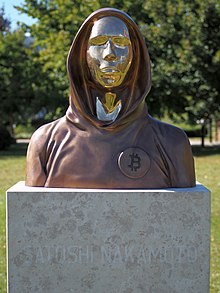Bitcoin White Paper: The Mysterious Identity of Satoshi Nakamoto and the Digital Currency Revolution
 summary:
Bitcoin White Paper: The Mysterious Identity of Satoshi Nakamoto and the Digital Currency...
summary:
Bitcoin White Paper: The Mysterious Identity of Satoshi Nakamoto and the Digital Currency... Bitcoin White Paper: The Mysterious Identity of Satoshi Nakamoto and the Digital Currency Revolution
Satoshi Nakamoto is the creator of Bitcoin, yet the true identity behind this name remains undisclosed. While Nakamoto claims to be of Japanese-American descent, the authenticity of this identity and their background is still a major enigma in the global financial sphere. In October 2008, Nakamoto published a paper titled Bitcoin: A Peer-to-Peer Electronic Cash System, introducing the revolutionary concept of Bitcoin—a form of digital currency. The core idea of the paper was to enable global transactions without intermediaries through a decentralized system. This vision quickly garnered the attention of cryptographers and financial experts worldwide.
On January 3, 2009, Nakamoto successfully launched the first Bitcoin software and carried out the inaugural Bitcoin mining operation, earning 50 bitcoins in the process. This marked the birth of the Bitcoin financial system. As Bitcoin gained popularity, it not only transformed the landscape of digital currency but also had profound effects on the global financial structure. However, Nakamoto's identity has remained a mystery. According to some reports, WikiLeaks founder Julian Assange speculated that Nakamoto might be a cryptography enthusiast and possibly a supporter of a decentralized movement.
Despite this, numerous theories about Nakamoto's true identity have emerged. One perspective suggests that Nakamoto could be an anarchist whose intention was not to subject digital currency to government or central bank control but rather to create a global currency free from regulation and open to unrestricted flow. This view reflects Bitcoin's decentralized nature since its inception, standing in opposition to the high-cost intermediaries and governmental intervention typical in traditional financial systems.
Speculation about Nakamoto's identity has been abundant. In 2015, Bhagwan Chowdhry, a finance professor at UCLA, even nominated Nakamoto for the Nobel Prize in Economics. Chowdhry believed that Bitcoin’s invention not only has the potential to disrupt the global monetary system but also to challenge the market dominance of traditional financial institutions like Western Union, Visa, and MasterCard. This nomination underscored the revolutionary impact of Bitcoin as a decentralized digital currency.
Various hypotheses regarding Nakamoto’s true identity persist. In 2012, computer scientist Ted Nelson suggested that Japanese mathematician Shinichi Mochizuki could be Nakamoto. However, no concrete evidence supports this claim. Subsequently, blogger Skye Grey conducted stylometric analysis and theorized that former George Washington University professor Nick Szabo might be Nakamoto. Szabo had previously written about bit gold, which is considered a precursor to Bitcoin.
The most contentious speculation emerged in March 2014 when journalist Leah McGrath Goodman claimed that the real Satoshi Nakamoto was Dorian Nakamoto, a Japanese-American living in California. Although this report attracted significant media attention, Dorian Nakamoto denied any connection to Bitcoin, explaining that his responses were misinterpreted. Satoshi Nakamoto also clarified through the P2P Foundation that they were not Dorian Nakamoto.
Additionally, in 2015, Australian academic Craig Steven Wright publicly declared himself to be Satoshi Nakamoto and attempted to provide evidence to substantiate his claim. However, the validity of this evidence was widely questioned, particularly after he refused to present critical proof, leading to considerable controversy.
Despite the ongoing uncertainty surrounding Nakamoto's identity, the topic remains a focal point in the financial world. Bitcoin's success has demonstrated the immense potential of decentralized digital currencies. Regardless of who Nakamoto truly is, Bitcoin and blockchain technology continue to profoundly influence the global financial landscape. Bitcoin’s evolution has not only reshaped the realm of digital currencies but also prompted a deep reexamination of existing financial systems, serving as a key driver for future financial innovation and transformation.
Tags: Satoshi Nakamoto, Bitcoin, Nobel Prize in Economics, Cryptography, Decentralization

